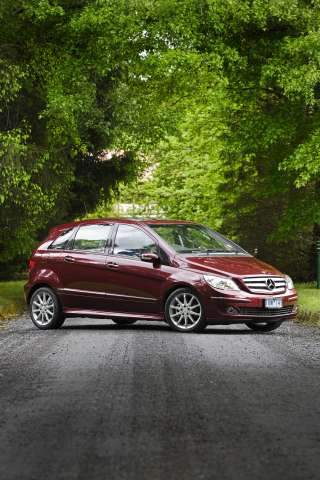|
|
|||||
|
Five Stars for the Mercedes-Benz B-Class
|
||||
|
The Mercedes-Benz B-Class has passed crash tests performed in accordance with
the European NCAP (New Car Assessment Programme) rating system, receiving five
stars from the independent examiners. Thus, the sandwich safety concept developed
and patented by Mercedes-Benz, which has already proven itself on countless
occasions since its launch in 1997, has demonstrated its effectiveness once
again. “Safety resides at the heart of the entire range of Mercedes-Benz vehicles
and this is once again demonstrated with the five-start result achieved by the
B-Class”, said Horst von Sanden, managing director for Mercedes Car Group in
Australia. “The innovative design of the B-Class is not only intended to maximize
comfort and driving performance, but enhance the overall safety of the B-Class.
This five-star NCAP rating simply underlines the engineering performance of what
is an already remarkable car that has enjoyed stunning sales success both across
the world and in Australia.” Thanks to the sandwich concept, the Mercedes-Benz B-Class occupies an
exceptional position among its segment. The arrangement of the engine and
transmission in a tilted position partly in front of and partly under the
passenger compartment means the Compact Sports Tourer offers a larger front
crumple zone than other passenger cars in its class. In a serious head-on crash
the drive system unit does not move in the direction of the interior, but slides
down the pedal floor panel, which also slopes downwards. This means the
occupants sit around 200 millimetres higher and thus above the impact zone – an
advantage in the case of a side impact. At the same time, the intelligent
sandwich principle makes it possible to offer generous interior dimensions with
compact external measurements. The B-Class thus offers typical Mercedes occupant
safety with exceptional spaciousness and comfort. A further measure that contributes to the exemplary safety performance of the
Compact Sport Tourer from Stuttgart includes a body structure made from
extremely firm steel alloys with innovative adhesive joints. This provides the
front-end structure of the Mercedes-Benz B-Class with consistently high
deformation resistance during the entire crash phase, thereby reducing the loads
on the occupants. The engineering of the interior restraint systems also meets the high
standards set by Mercedes-Benz. Adaptive two-stage front airbags, belt
pensioners for the front and outer rear seats, adaptive belt force limiters at
the front, active front head restraints and newly-developed head/thorax front
side airbags round off the standard protective system for occupants. The Mercedes-Benz B-Class not only meets but also surpasses standard crash
test requirements. The Stuttgart-based automobile brand defines vehicle safety
based on an analysis of actual accident occurrences as part of an integrated
approach. In addition to occupant protection tailored to suit the severity of
the accident, this involves ensuring the quickest possible rescue of the
occupants following a collision and the avoidance of accidents using electronic
assistance systems such as ESP® and the brake assist system (BAS). For example,
in critical road-holding situations, the Mercedes-Benz B-Class electronic
stability programme (ESP®) works together with the electro-mechanical servo
steering to adapt the servo support to assist the driver in stabilising the car.
This extra ESP® function also aids steering correction and provides the car
driver with an even better road feel when braking on different road surfaces. An
analysis of official German accident statistics bears witness to the significant
contribution the braking assistant, which was first launched by Mercedes-Benz
ten years ago, makes to avoiding road accidents – in rear-end collisions the use
of standard braking systems in Mercedes passenger cars reduced the accident rate
by eight percent, while the percentage of serious pedestrian accidents fell by
as much as 13 percent. The high safety standard of the B-Class combined with ample space, exemplary
comfort, fascinating design and intelligent variability has quickly established
the Mercedes-Benz trendsetter as a successful model. More than 150,000 B-Class
models have been delivered world-wide since the car’s market launch in June
2005. The Mercedes-Benz B-Class is priced from $44,900 RRP (excluding on-road
costs) and is available from Mercedes-Benz passenger car dealerships across
Australia. | |||||
ABN 47106248033 |
 |
All rights reserved. |
